Carlos Spottorno’s newest photography project takes him to the countries that function as tax havens in Europe.
Carlos Spottorno’s camera is following the money. After a lengthy exploration of the financial plight of southern European countries, the photographer has turned his lens to the secretive and hermetic world of the super wealthy. According to research conducted by Oxfam a year ago, at least $18.5 trillion in private wealth is being hidden in tax havens worldwide. The figure equals a loss of more than $156 billion in tax revenue—enough to eliminate world poverty. Oxfam says that over two-thirds of that global offshore wealth can be found in European tax havens. In order to lend a sense of place to this otherwise abstract crisis, Spottorno has embarked on a series of remarkable, moody pictures of Luxembourg and Switzerland. They are the first of his newest project, “Paradise” (working title), for which he plans to visit all the countries that function as tax havens in Europe. He spoke to R&K from his studio in Spain.
Roads & Kingdoms: Let’s start with the original assignment. This project was born out of a shoot for El Pais, right?
Carlos Spottorno: That’s right. Although I consider it a little miracle. I was already planning to focus my next book on the wealthy part of Europe. I knew I wanted to shoot where the money is, but I didn’t know exactly under which perspective. That assignment was the perfect starting point, because I had the chance to go around Europe for about two weeks, find the right mood, the photographic language, and create an atmosphere.
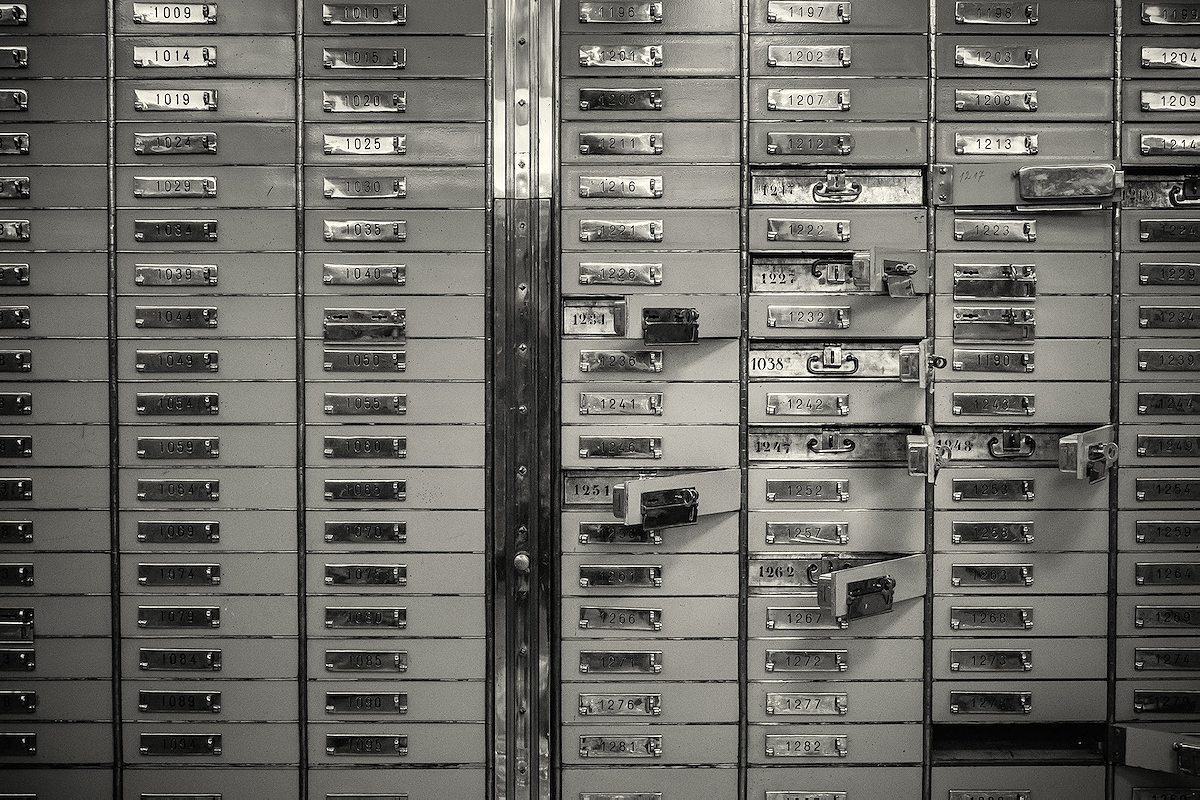
R&K: Why did you want to photograph Europe’s rich?
Spottorno: I have been shooting the weakest countries of Europe (the PIGS) for many years. I have been in contact with mild poverty, trying to see where the situation comes from. I have found numerous clichés that define the PIGS. Now I want to play with the clichés that define wealthy countries. But most of all, I’m interested in seeing how all that wealth is actually based on extremely unfair policies.
THE GERMAN ENTREPRENEUR, THE SPANISH CORRUPT POLITICIAN, THE RUSSIAN MOBSTER AND THE CHINESE TYCOON ALL HAVE THEIR MONEY HERE.
R&K: Was your process different when photographing the rich versus the poor?
Spottorno: Not really. It’s all about stereotypes, assumptions. The Pigs is about the idea of lazy and inefficient southern people, while Paradise is about the group of evil and dark individuals planning everything so the rich get richer and the poor get poorer. Both stereotypes are incomplete, but both are easily recognizable. In between that, I will try to add some real information. Paradise is about something you can’t really photograph. You don’t see the money, or the lawyers. You just see a 60-year-old man in a Porsche, and you assume he is rich, and knows how to evade taxes.
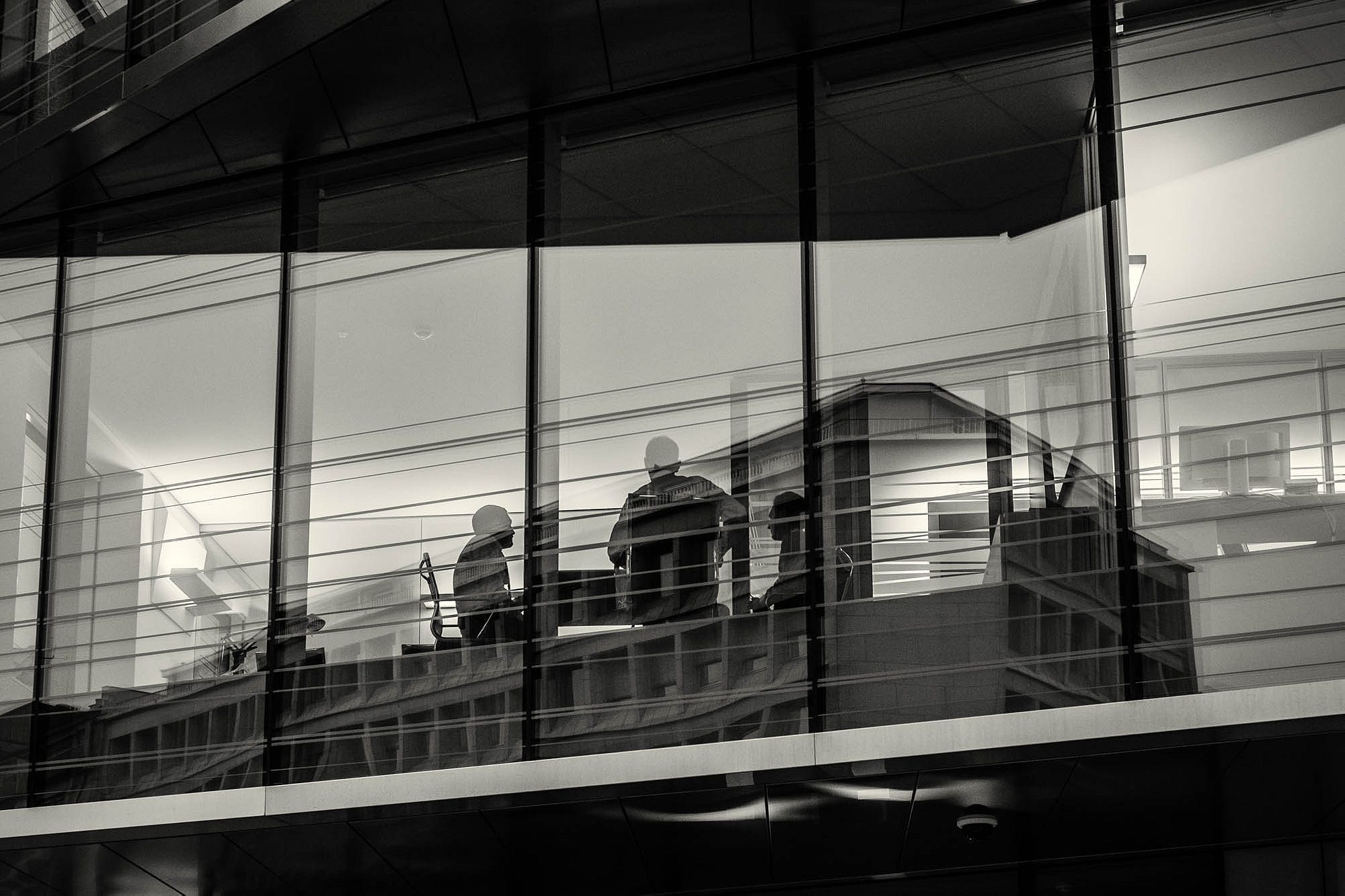
R&K: It seems though that you are more in retreat with Paradise. Many photos are taken from the street, through windows or from further away, instead of the many portraits you have in The Pigs…
Spottorno: Yes. The Pigs world is easily reachable. You can be a passerby and shoot without attracting too much attention. However, photographing Amazon’s office in Luxembourg is no easy task. There will always be someone telling you to move. It was very difficult to find a celebrity house in Switzerland too. I drove a lot to find one that is supposed to belong to David Bowie. On the other hand, I worked with the border police to get access to their activities. Being on assignment for El Pais was very helpful in that sense.
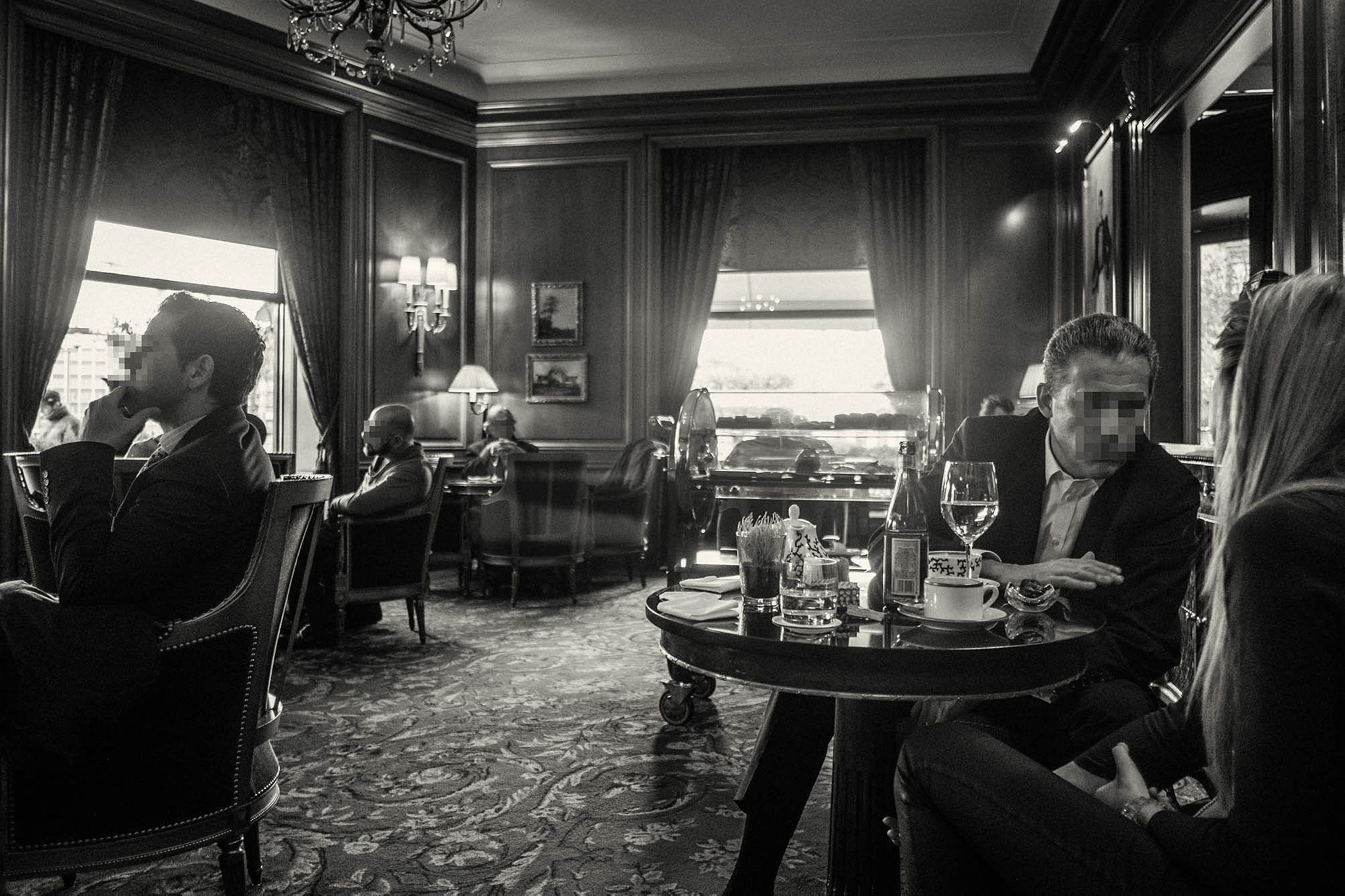
R&K: Which countries did you go to? And what was the atmosphere like in these places?
Spottorno: Just Switzerland/Italy and Luxembourg. The plan is to visit all the countries with fiscal benefits in Europe – there are about 10 of them. The atmosphere is like a noir movie: timeless, quiet, dark. I tend to avoid items that look too contemporary, and try to keep the story in a visual frame that could fit anywhere between 1950 and today. In the same way, in The Pigs, I tried to avoid written signs so the viewer would eventually be confused about the locations of the photos. Whenever I start a project, I choose a language. That explains why I switched so radically from flat color shot under the burning southern sun in The Pigs, to the somber black and white for the grey days in the heart of Europe. I hope the winter is long so I can do everything in a cold atmosphere. I plan these things like I’m shooting a movie. This time, I’ll try to create a country of wealthy conspirators.
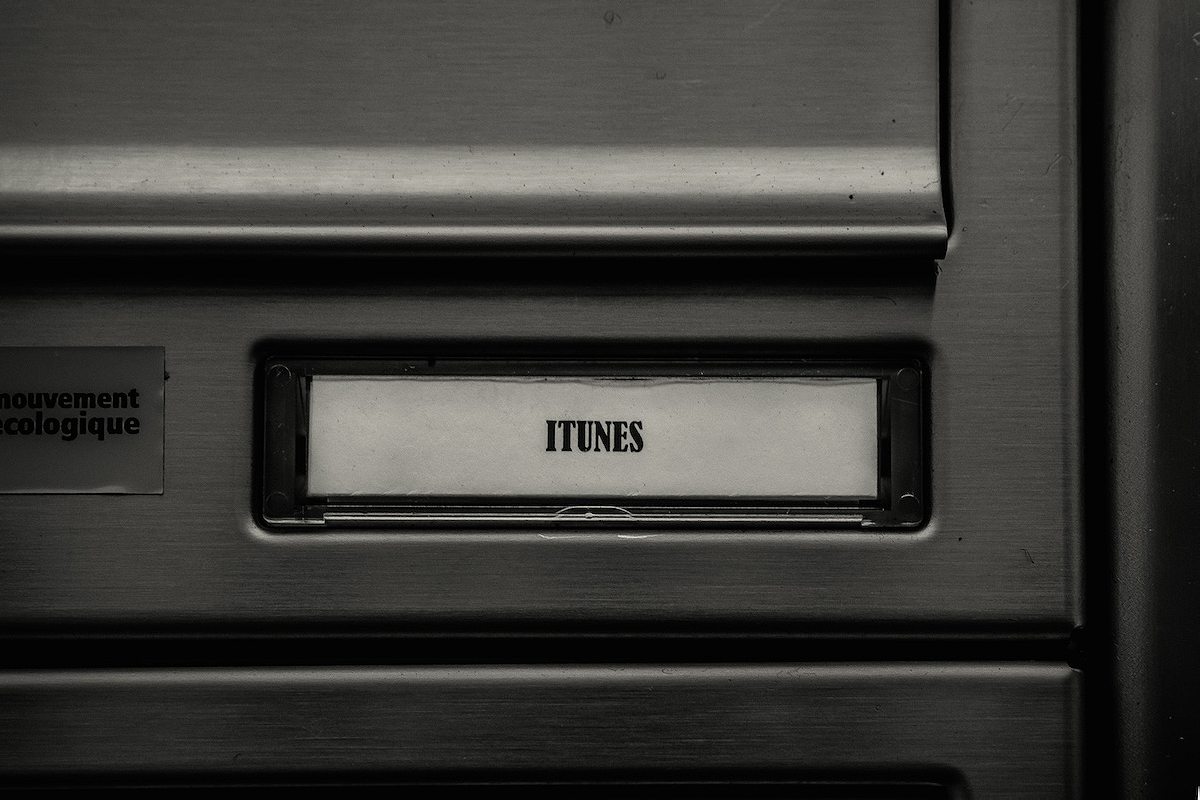
R&K: So you actually felt an air of “secrecy” when walking around?
Spottorno: I was absolutely acting like a spy. And dressed like one too.
R&K: Do you feel like these are places that don’t change? Places that are completely sealed from the rest of the world?
Spottorno: That’s right. They are the epitome of stability. Everything looks eternal, timeless. The German entrepreneur, the Spanish corrupt politician, the Russian mobster and the Chinese tycoon all have their money here. Switzerland is where those who make money in Hong Kong (another tax haven) eventually put their money. Luxembourg is even more complex: it belongs to the EU but it breaks hundreds of EU rules. There’s an obvious interest to let these illegal ways keep working. However, at the same time, the US is now pushing very strongly to put an end to banking secrecy. By the end of 2015, the G20 has to accomplish a certain number of goals related to fiscal justice. It’s going to be a very interesting period.
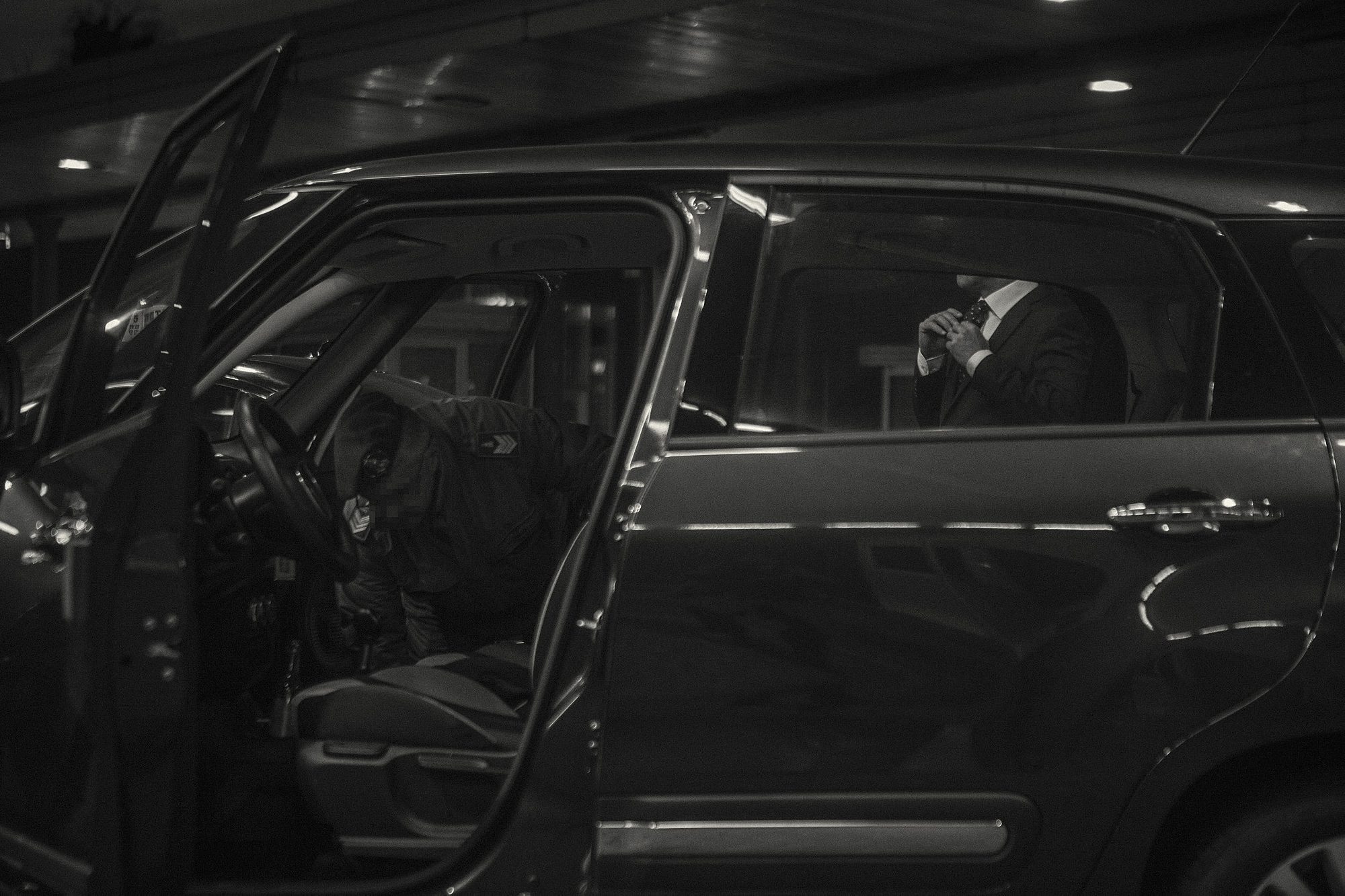
R&K: It’s such a fascinating world. And what about the photos you took with the border police. What’s happening there?
Spottorno: The photos with the police are interesting because you see how they waste countless time at the borders to catch 10% of the people who smuggle relatively small amounts of money around, while the real deal is corporate. The paper money is peanuts and the officers know it. They just do their job, but they know it’s going nowhere.
THE CHILDREN OF THESE MEN DON’T KNOW WHAT DADDY IS UP TO. THE WIFE KNOWS, BUT SHE DOESN’T CARE.
R&K: So what is being done to monitor the real money being moved around?
Spottorno: In recent months, Switzerland has been forced to provide information about how much gold is sold or bought through their banking system. It’s a small, but important step. However, it’s going to be extremely difficult to force the City of London to submit their financial laws to a world standard. They are more than ready to leave the EU for less than that, but that is the main reason for Europhobia in the UK.
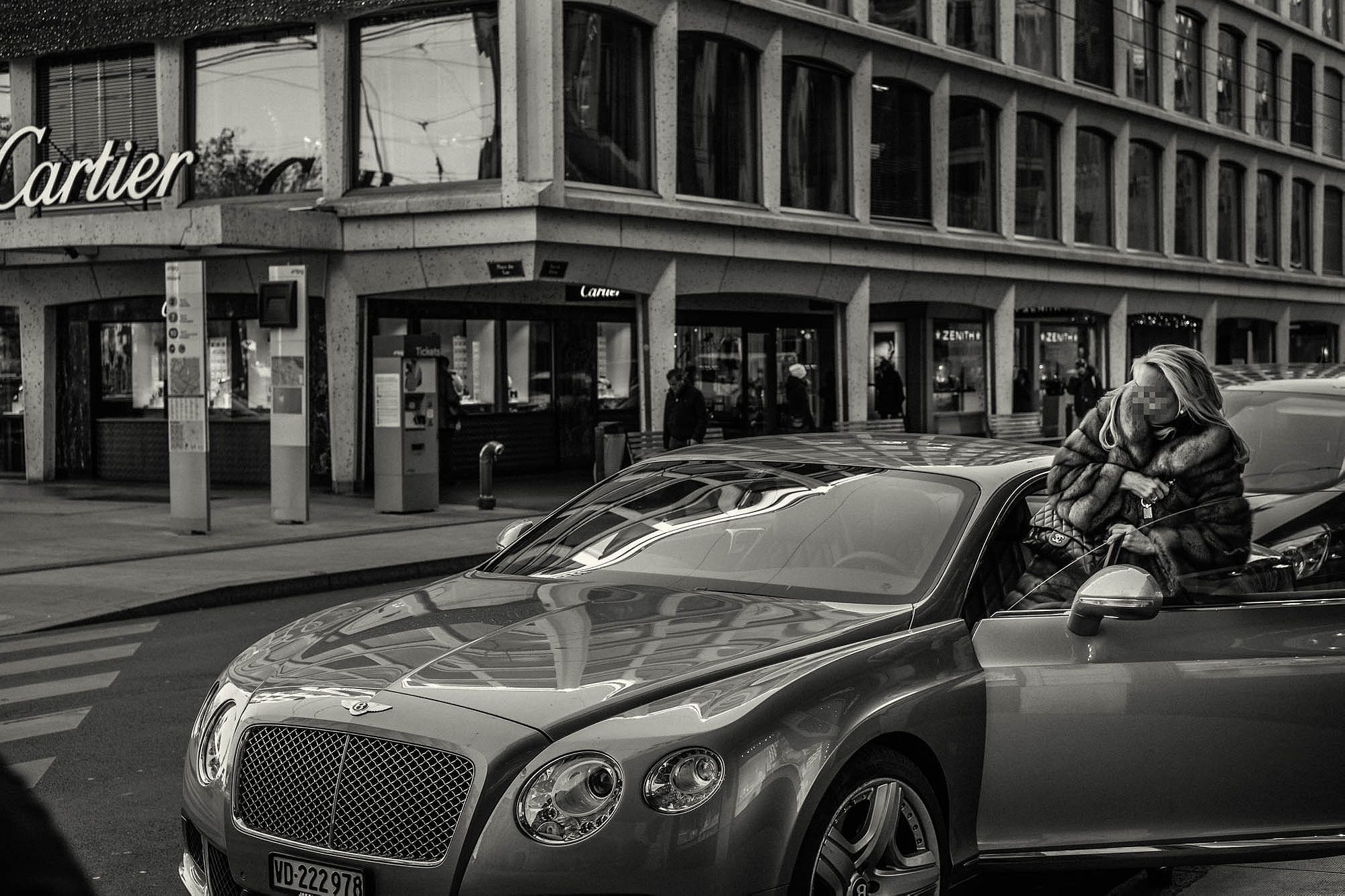
R&K: You’ve spent a lot of time on the subject. What, in your opinion, could be done to reduce the mismanagement of money in those places?
Spottorno: Things like this, for example. But I’m not doing direct advocacy. I’m just going to create a kind of “docufiction” book to put images to what a lot of people can’t even think about. I am working on real locations, with real people, but my work here won’t be like a journalistic reportage, because I don’t think I can really do it. I will need to build a story around pieces of reality. The pieces may be real, but the final story may look more like fiction.
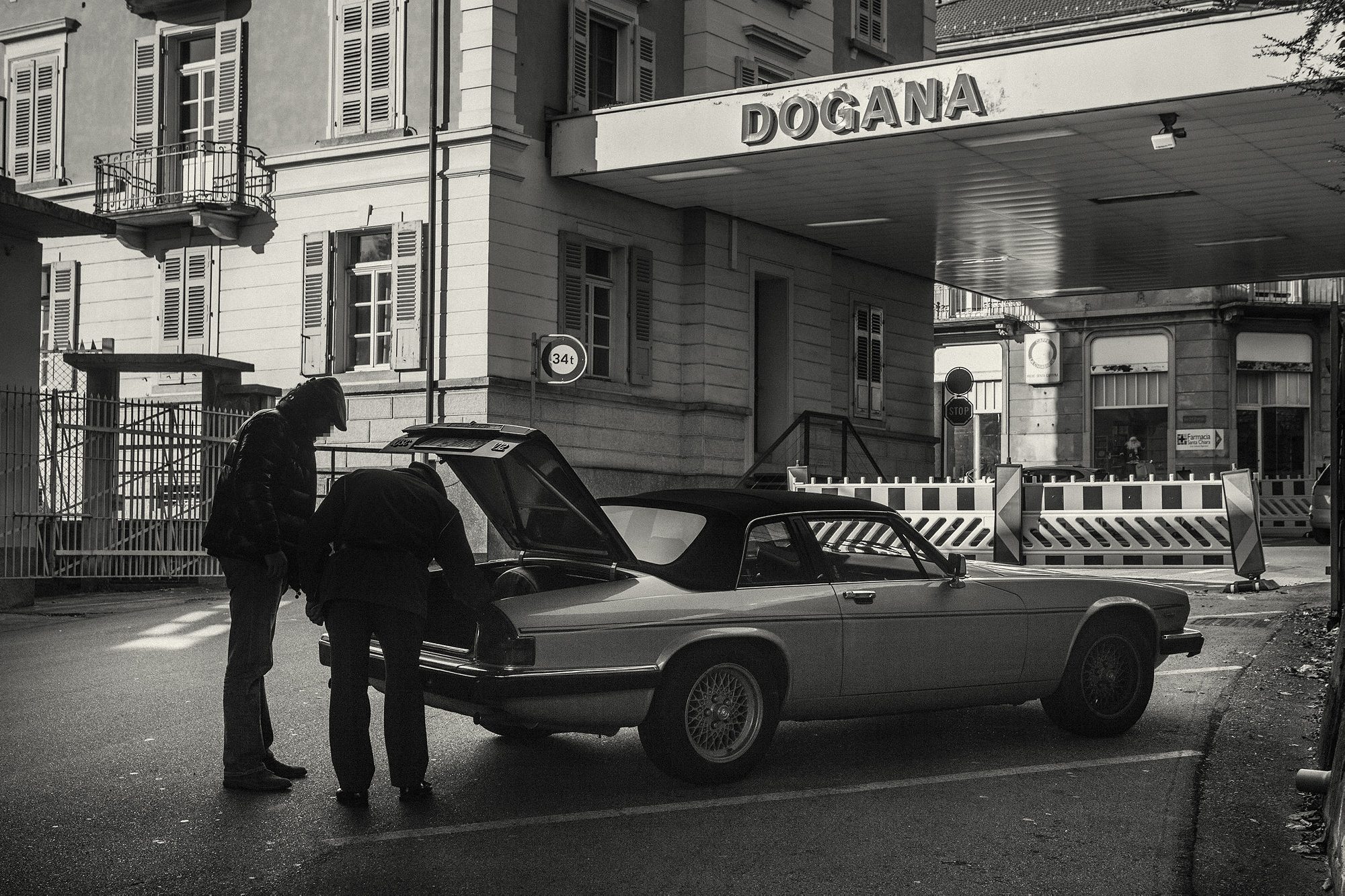
R&K: You’ve published quite a few books already. How much time do you spend on personal, long-term projects?
Spottorno: I spend more time editing and thinking than shooting. I’ll try to shoot everything I need for Paradise in the coming year, but there are many countries to visit, so I’m sure new dimensions will arise. I suppose that visiting Lichtenstein when it’s under a meter of snow will give this story a nice perspective. I foresee some pleasant and joyful images too. The children of these men don’t know what daddy is up to. The wife knows, but she doesn’t care. Then it will take another six months of editing and design. I have designed everything myself to date, but it will depend on what the final form of the book will be. I have an idea, but that’s top secret. In terms of content, I think the last three assignments I had are going to be present somehow. One was a visit to a top luxury brand’s shoe factory in Venice–I’m sure there is a page in my book for that. Then, I did a big shoot about immigration in southern European countries, which will appear too. I don’t know exactly what I get out of this kind of projects, but it keeps me thinking and doing interesting things in between assignments. Also, I suppose that this will be my trace on Earth. My hard drives will die, like all the rest.
You can see more of Carlos Spottorno’s work here, and learn about his project “The Pigs” here.